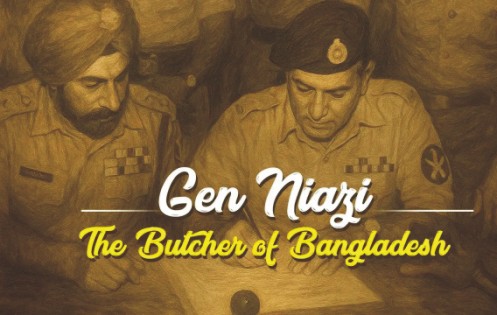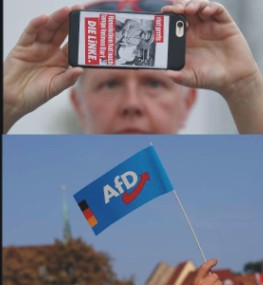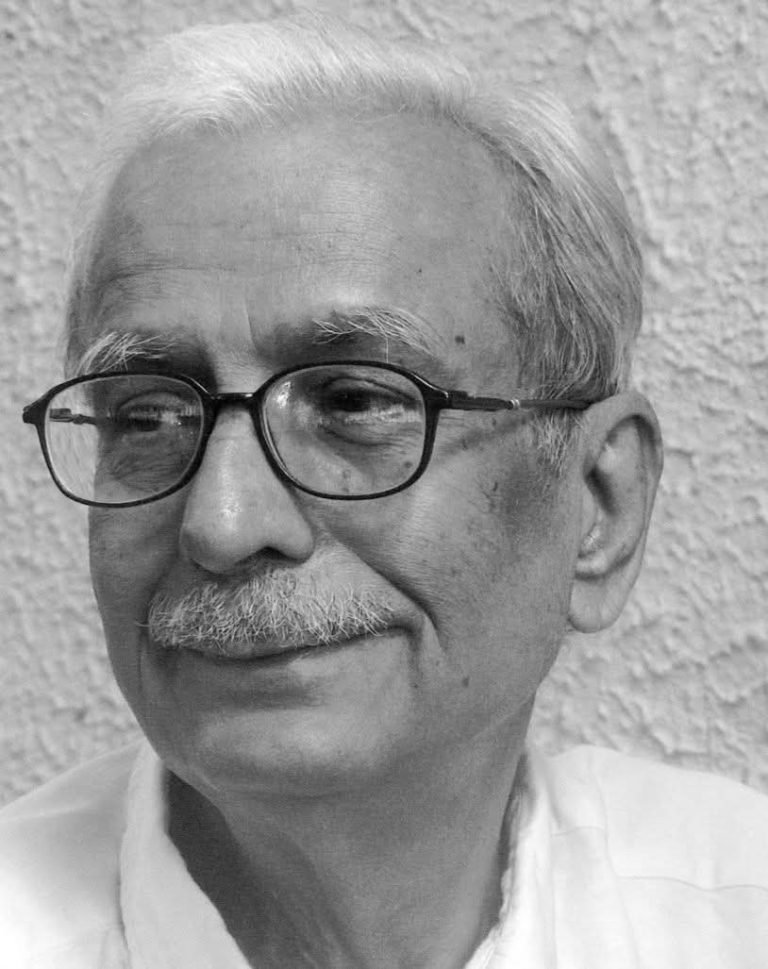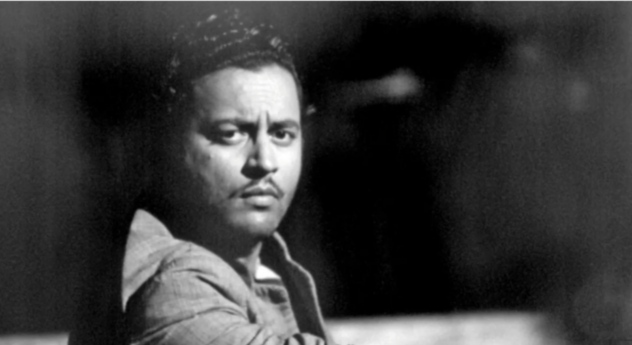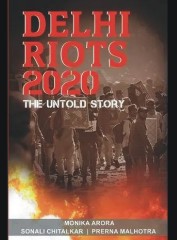
NIVEDITA MENON AND ADITYA NIGAM
This post is jointly written by NIVEDITA MENON & ADITYA NIGAM
Bloomsbury India has withdrawn the book Delhi Riots 2020 in the face of massive outrage at its publication. While we commend Bloomsbury’s decision to withdraw, we also note that its statement explaining this act ends with the the following sentence: ‘Bloomsbury India strongly supports freedom of speech but also has a deep sense of responsibility towards society.’
The implication here is clear for those who want to see it. The publication of the book was a matter of ‘freedom of speech’, while its withdrawal comes from a ‘deep sense of responsibility towards society’.
At the outset let us state that we do not question the publication of books with which we do not agree, because intellectual and political differences of opinion, and the freedom to express these are the life blood of a democracy. We have not at any point questioned other publications by Bloomsbury, or by other publishing houses, that express views that support the current regime (which has consistently throttled such freedom of expression, and by whom many of us personally are under serious attack). Nor have we raised objections to the flood of hastily turned out books by many publishers that produce intellectually unsustainable arguments that bolster the politics of the anti-constitutional, Brahminical Hindu Rashtra.
So let us spell out what is reprehensible about Delhi Riots 2020 and why it should not have been published in the first place.
1.The book is based on a “fact-finding report” presented to the Home Minister in June 2020. This book does not claim to be opinion, evaluation or analysis of a particular violent event in Delhi. It claims to be facts about the violence – not only presented directly to the Home Minister (who did not receive any other report on the violence, prepared by other citizens’ groups), but within 6 weeks, it gets published as a book.
2. The misrepresentations and breathtakingly unsustainable allegations in this “fact-finding report” have been exposed quite thoroughly, in this article.
3. The investigations into the violence are still going on in court, the facts are hugely contested and the trials are still in the very initial stages – that is, at the stage of framing of charges.
4. The lower courts, during the bail hearings of the large numbers of students, intellectuals and activists arrested for “instigating” the violence, have hauled up the police for presenting a one-sided story of the case. For example, Additional Sessions Judge Dharmender Rana observed:
Perusal of the case diary reveals a disturbing fact. The investigation seems to be targetted only towards one end. Upon enquiry from Inspector Lokesh and Anil, they have failed to point out what investigation has been carried out so far regarding the involvement of the rival faction
In another example, the Delhi High Court demanded that Delhi Police show the video of the speech of jailed Pinjra Tod member Debangana Kalita, which supposedly incited the mob.
“I want to know what she said which instigated the mob,” the Judge said. The police were unable to show any such evidence.
It seems to be the case that the police are framing large numbers of people who had nothing to do with the violence but were active in the massive and peaceful protests against the CAA.
Although the major loss of life and property was borne by Muslims in the violence in Delhi, Delhi Riots 2020 claims that Muslims are responsible for the violence. The large proportion of those arrested is also Muslim.
5. The earlier report by the authors of Delhi Riots 2020 that was presented to the Home Minister is the basis for the Delhi Police narrative of the violence, and uses terms like “Left-Jihadi model of revolution” which is exactly the state’s narrative today of “Urban Naxal-Jihadi” conspiracies, by which large numbers of intellectuals including the 80 year old poet Varavara Rao have been jailed under draconian provisions.
6. The report as well as the book therefore embody hate speech and libel, and once the cases are tried and completed, if justice is done and the truth revealed, would Bloomsbury have been ready to stand by the blatantly false and unverifiable assertions of Delhi Riots 2020?
7. The first author, Monika Arora publicly tweets hate speech, and against this background, there are good reasons to believe that this book is not an exercise in reporting an event (we are assuming it is not an academic book) but in fact, a pre-constructed narrative that feeds into the current regime’s project to suppress dissent to its divisive policies.
That it was going to be released by the authors in the presence of BJP leader Kapil Mishra who has publicly, many times, exhorted violence against Muslims, should be an indication of what this book represents. Videotaped evidence of Mishra’s hate speech was being ignored by Delhi Police. When Justice Muralidharan of Delhi High Court insisted on its being played in court the next day, he was transferred that very night (see story here).
This is the extent to which complicity goes, in covering up the real perpetrators of the violence in Delhi.
In short, Delhi Riots 2020, written by the same three people who concocted the “fact-finding report” of June 2020, is clearly an attempt to lend respectability to the tissue of utter lies that Delhi Police is constructing under instructions from their superiors.
Given this background, the following kind of statement leaves us breathless at the audacity of the ruling dispensation:
India’s Principal Economic Advisor Sanjeev Sanyal, who has published several books, said he will never work with Bloomsbury India again. “A few weeks ago, I had raised the issue of how a tiny cabal controls Indian publishing and constantly imposes ideological censorship,” he tweeted. “We have just witnessed one example of how this insidious control is wielded. I have not read the book in question & have no idea if it is good or bad. However, this is obviously not a quality control problem but about censorship.
That the evils of censorship are bemoaned by supporters of a regime that has put students and professors in jail for mere speech, would be mildly amusing if it were not so tragic.
If we were to raise a row about the quality of books being published across the country now, including by Bloomsbury, we might have had something to say about this biography of Baba Ramdev, a Bloomsbury publication, in which this sentence, among others, might elevate and instruct you:
“That time, young Ramkishan’s refractory forced his father to give up his bad habit of smoking hookah, and today after independence, Swami Ramdev fights corruption, communalism, maladministration, interference of foreign powers in Indian governance…”
But we do not demand withdrawal of books due to their being “bad books”. That is the prerogative of the regime and its army of trolls supported by the likes of Shri Sanjeev Sanyal. Indeed, we want such bad books to be published and remain in the public domain, so that people can see them for what they are, rather than assume martyrdom at the hands of some imaginary cabal.
As authors of Bloomsbury (after Zed Books was bought by Bloomsbury, Zed authors are Bloomsbury authors too), we were ready to call for a boycott on buying all Bloomsbury books, including ours. But Bloomsbury decided to live up to its mission statement:
Bloomsbury is committed to equality, diversity and inclusion and is opposed to discrimination, bullying and harassment. We condemn systemic racism in society in all its forms.
Bravo Bloomsbury.
But we are also aware the drama is not over. While we wait and watch, we simply want to state very clearly once again: the withdrawal of Delhi Riots 2020 is a correct decision because the book is full of claims to fact, that Bloomsbury is in no position to have checked. A hefty legal suit may have been on the cards, and if it decides under government pressure to publish after all, this possibility is not off the table.
Courtcy Kafila- link is given bellow

